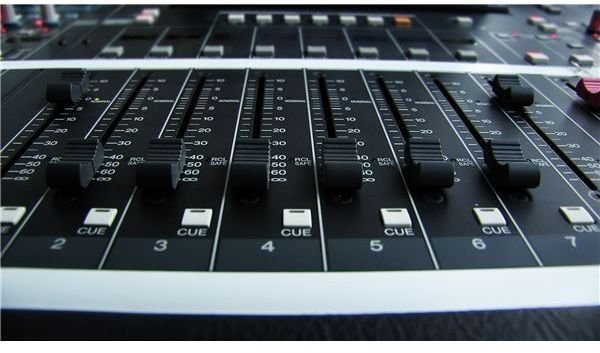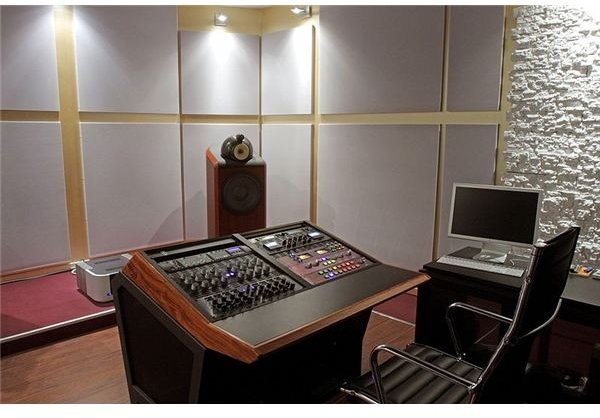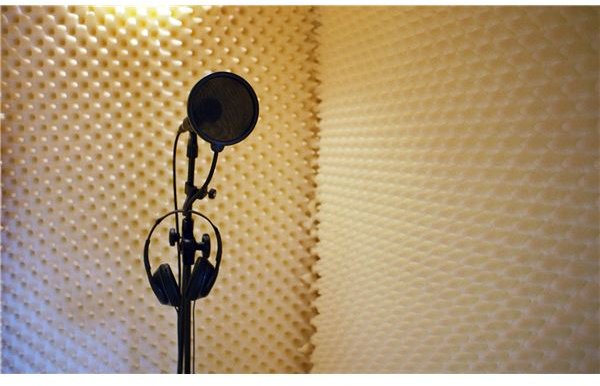Music Production and Mixing Engineers: Careers in Music Recording
In earlier times, the recording studio’s personnel would operate the studio gear and the musicians would play the music. Nostalgic scenes show where the recording engineers were subject to a dress code and the technical staff wore lab coats. The job descriptions and duties were generally more defined, although there were some who wore more than one hat.
Today, it is common for musicians to own their own computer-based recording system. Some provide long distance recording services where a client sends a project and the musician records their parts. This often results in the musician recording themselves, which was not so common a few years back.
A credit describes the function a person performed for a project. The same term used for a credit, Recording Engineer for instance, can be used to describe a career when it is consistently that person’s specialty.
Recording Engineer
A recording engineer, sometimes called a tracking engineer, is the person responsible for operating the equipment while recording. On a grander scale, this includes capturing the vision of the artist and producer, while always ensuring outstanding results. A technically perfect recording is not always the objective, so the recording engineer is both a technical and a creative position.
As a career, recording engineers study the craft of audio recording. He/she is highly knowledgeable with microphone techniques, the use of studio equipment and music equipment, and how to utilize room acoustics. Furthermore, recording engineers understand how to avoid problems in the recording process that can cause problems during the final mixing.
(Image courtesy of stock.xchng)
Mixing Engineer

A mixing engineer, or mixer, is someone who’s primary job is to create the final mixes for release. The mix engineer often has very little, if anything, to do with the recording process. However, many start out working as recording engineers.
Most modern recordings are done using multiple tracks—known as multi-track recording. The instruments are separated in a manner that allows great flexibility in the final mix. The mix engineer uses the recorded tracks to create a final mix by balancing and processing each element.
A traditional mixing engineer is different from a remixer in the sense that a remixer generally creates a new version of a song by chopping up sections, moving things around, adding musical events, and possibly reusing some of the original individual elements. For instance, a remixer might create a 12 minute dance version of a four minute pop hit.
(Image courtesy of stock.xchng)
Producer
There are variations of what the term “music producer” entails. Generally speaking, it depicts the person who oversees the creative process while making sure to carry out the agreement with the record label (or whoever contracted the work). However, some music producers are a big part of the writing and creation of the music tracks. Others monitor the performances of the musicians and singers, making adjustments to or having discussions about the direction only when they feel it is necessary.
It is the responsibility of the producer to make the project turn out great — no matter what it takes. Sometimes that is as simple as hiring the right people for the project, such as musicians, background singers, arrangers, and engineers. The producer’s creative role in music recording has been compared to the director’s role in film making. In addition to “producing” the music, the producer is expected to work within the agreed upon budget and time constraints. Producers are often paid an upfront amount, plus royalties.
Mastering Engineer
When releasing a vinyl record, the mastering engineer cuts grooves in a disc called a lacquer. Metal stampers are made as a reverse of the lacquer. In other words, the stampers have ridges instead of grooves in order to “press” record copies. How many lacquers are created and how many steps are taken in the process depends on how many records are going to be pressed. Mastering engineers became known for their ability to make final enhancements to the music mixes, while also executing the technical requirements.

Nowadays, the majority of mastering engineers will probably never cut a lacquer for vinyl record pressing. Instead, their craft lies in mastering for digital release formats. They are expected to elevate the quality of the mixes and make sure the technical requirements of the format are met. If the mixes have too much low end (low frequencies), the mastering engineer may clean them up a bit, or he may add stereo processing to create more depth. Finally, in an area that has drawn controversy, the mastering engineer makes the final product sound as loud as other modern day commercial releases. Some say the loudness issue has gone too far, resulting in “loudness wars” that sacrifice the integrity of the music.
Mastering is the final stage of music production. Afterwards, the finished “master” is ready to be manufactured, configured for downloads, or utilized for its intended use.
(Image courtesy WikiCommons, Masterplus)
Starting a Career
One way to start an engineering career is to attend a school. Berklee and Full Sail are but a few of the many schools available. However, school can be very expensive. Another approach is to jump start a recording career by recording local artists, or any artist, for cheap. This may require putting together your own studio. These days you can buy very suitable equipment for a modest cost compared to a decade or so ago.
In either case, keep in mind that hard work and a genuine focus on making great recordings will give you the best chance for success. Developing relationships and connections with people that fit your direction will give you the right opportunities.
Good luck in your ventures!
References
Author’s experience
https://www.urpressing.com/FAQ.php
https://www.berklee.edu/careers/mpe.html
